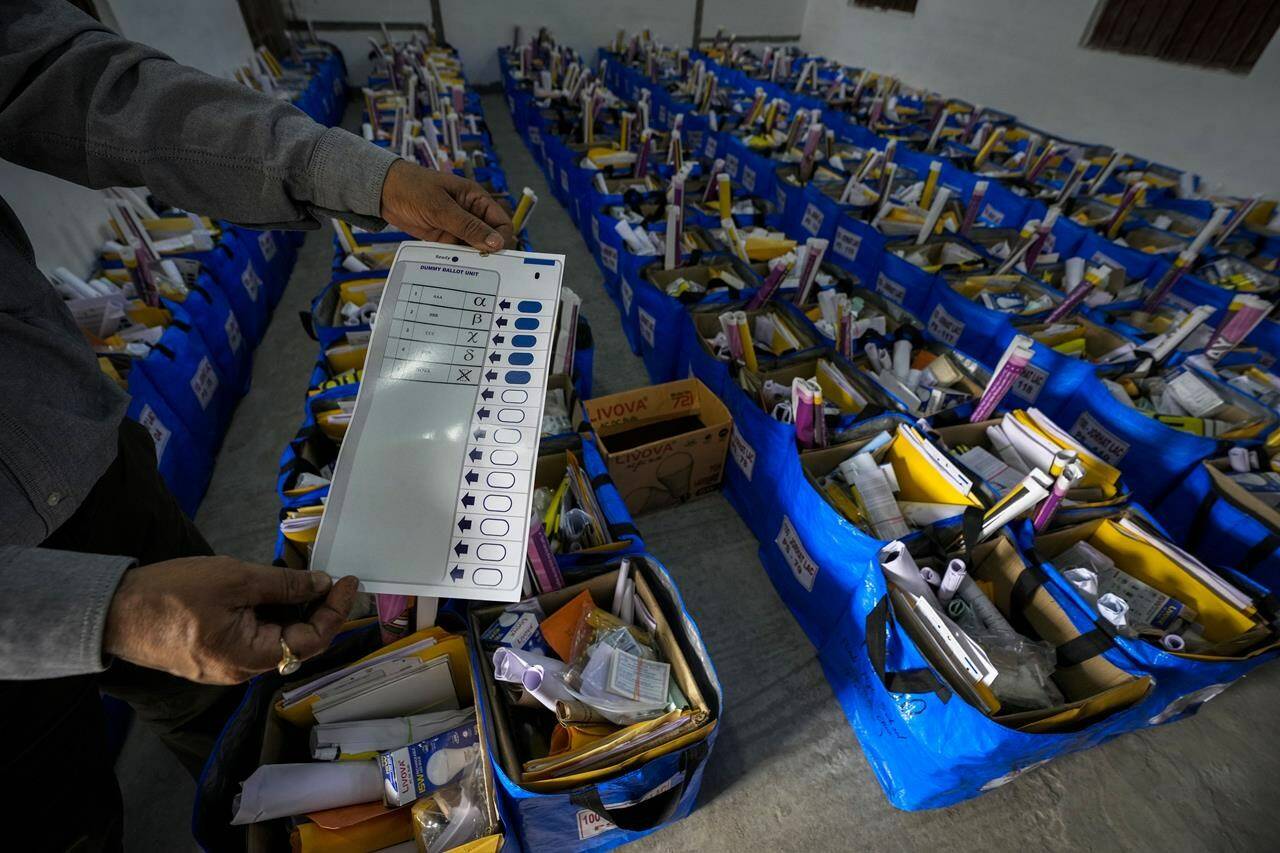Parmod Chhabra is deeply invested in the Indian general election that gets underway on Friday, with almost a billion people eligible to vote, but he won’t be casting a ballot.
Nor will the vast majority of the overseas Indian community in Canada.
The reasons are simple. India requires overseas citizens to travel back to their home electorates to vote in person on polling day. There is no option for postal or electronic voting for the general overseas population, and people like Chhabra lose eligibility because they also have foreign citizenship.
“I will suggest there’s a very small number of people who are going to go back to vote,” said Chhabra, president of the India Canada Association community group in Ottawa, citing the roughly 14-hour flight from either Toronto or Vancouver and round-trip fares around $2,000.
“If it was close enough, like a three-hour or four-hour flight, I will bet you there will be hundreds of thousands of people going,” he said. “The interest level is very high, but this cost and the time which it takes to get there, that is prohibitive right now.”
Indian authorities say about 969 million people have registered to vote in the 44-day general election, creating a massive electorate of about 12 per cent of the global population for the biggest election in history.
“It’s simply the largest kind of exercise in voting that humanity has ever seen,” said Vina Nadjibulla, the Asia Pacific Foundation of Canada vice-president of research. “It’s a type of election that the world really hasn’t seen before.”
However, for a country with a huge overseas diaspora population, voting from overseas Indian citizens is scarce because of the in-person voting rule.
Official figures showed that of the more than 600 million votes cast in the last Indian general election in 2019, only 25,606 came from overseas voters.
Almost 100,000 out of 1.35 million eligible overseas Indian citizens had registered to vote, said University of Victoria political science professor emerita Reeta C. Tremblay.
In comparison, the Philippines — another democratic country with a large overseas diaspora — reported more than 432,000 overseas votes in its 2016 presidential election, with close to 1.4 million registered as eligible. Registered Filipinos overseas can vote by mail or at consulates and embassies around the world.
“The traditional argument against overseas voting has been that Indian citizens living outside India, who generally have insignificant knowledge of the domestic issues, might unduly influence the outcome of the elections,” Tremblay said in a written response to questions.
“India has begun to reconsider the inclusion of the overseas voters through different means — proxy voting, electronic voting, postal voting or voting in the diplomatic missions,” Tremblay said. “However, nothing seems to have materialized for the 2024 elections.”
India Canada Organization chairman Naseer Mehdi Khan said there are about 25,000 temporary foreign workers from India working in the tech sector, and many were anxious to vote.
“They requested us to forward the same (concern) to the (Indian) High Commissioner,” Khan said about the desire for many Indian citizens wishing to vote without travelling to India. “We suggested they should be voting in the Indian election … People very much want to get involved, but they couldn’t.”
The election comes amid a spotlight on the Canada-India relationship, which has hit new lows recently.
Last year, Prime Minister Justin Trudeau said there was credible intelligence that Indian authorities were involved in the killing of Sikh community leader Hardeep Singh Nijjar in British Columbia, something India denied.
An inquiry this month into foreign interference in Canadian elections has heard allegations of Indian involvement. India’s government has called the claims baseless.
Researcher Tremblay said overseas interest in India’s election may never have been higher, around the world with Prime Minister Narendra Modi’s administration coinciding with India’s rising international profile and strengthening economic clout.
Tremblay said the rationale that overseas voters needed more knowledge of India’s domestic issues “seems to have lost ground” in light of the global attention, and participation in Indian society by the diaspora community in other ways.
“The overseas Indians contribute large remittances,” she said, referring to money sent home by individuals overseas. “In 2023, India topped global remittance charts at $125 billion. Moreover, overseas Indians are also a source of funding for political parties. With Mr. Modi’s popularity with the Indian diaspora, this has taken on much greater significance.”
Chhabra and Kahn echoed those sentiments.
“It’s the most important election in years in India’s development,” Khan said. “Everybody’s talking about it. What will happen after this election? Are they going to continue with whatever promises they have given? I spoke to one of my nephews (in India) and they’re really looking forward to it, like this is the first time they’re going to vote.”
Chhabra owns property in India, has numerous family members living there, and is planning to divide his time between the two countries now that he’s retired. But due to his Canadian citizenship, he can’t vote even if he was willing and able to travel.
Nevertheless, he said he has been increasingly interested in Indian politics since Modi became prime minister in 2014.
“I think we are mainly looking at stability,” he said. “That is the one thing we’re looking at in this election, because we have seen in last 10 years that stability, where the prices are not going that high up. Politically, things are stable, your investments are safe. And so, people are looking for the continuity of that.”

